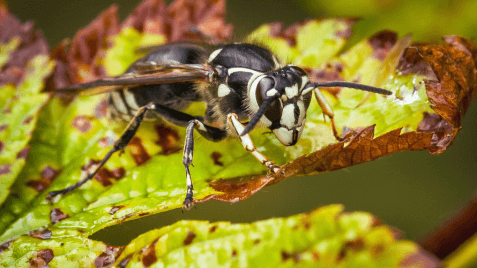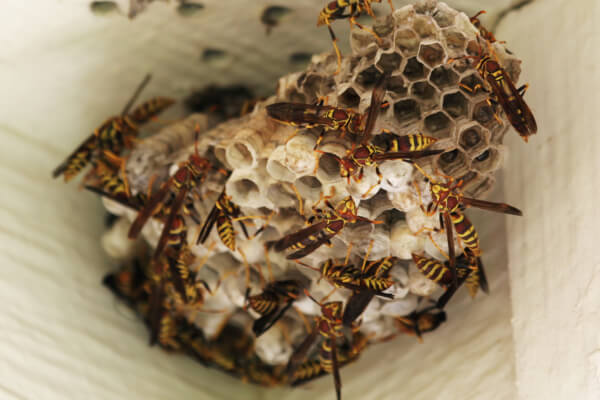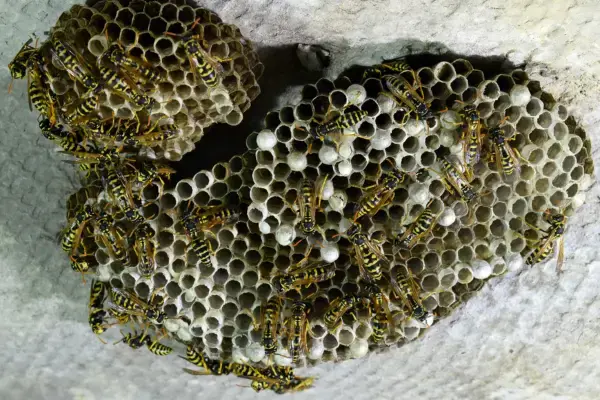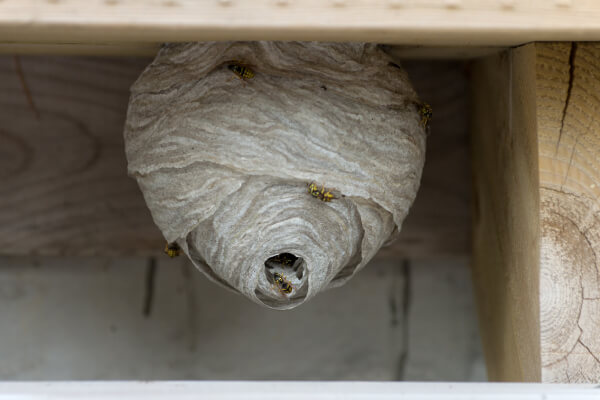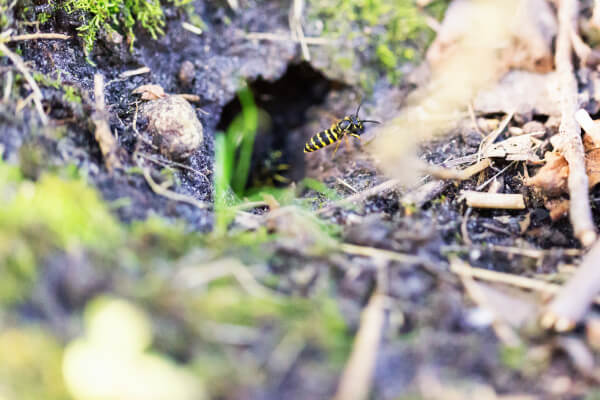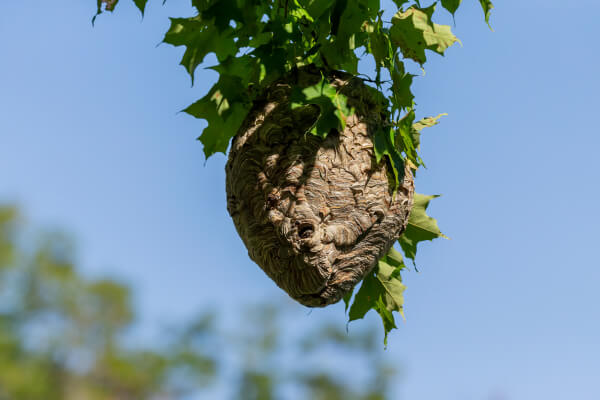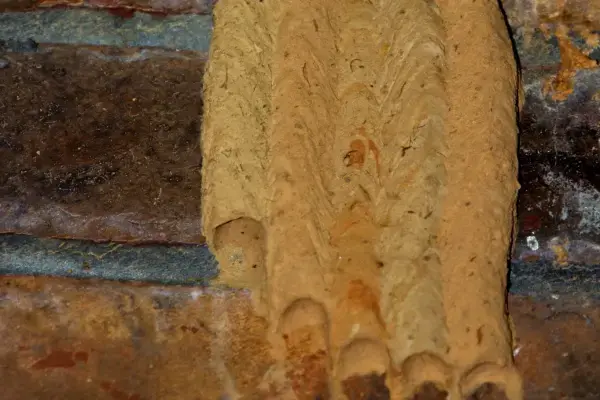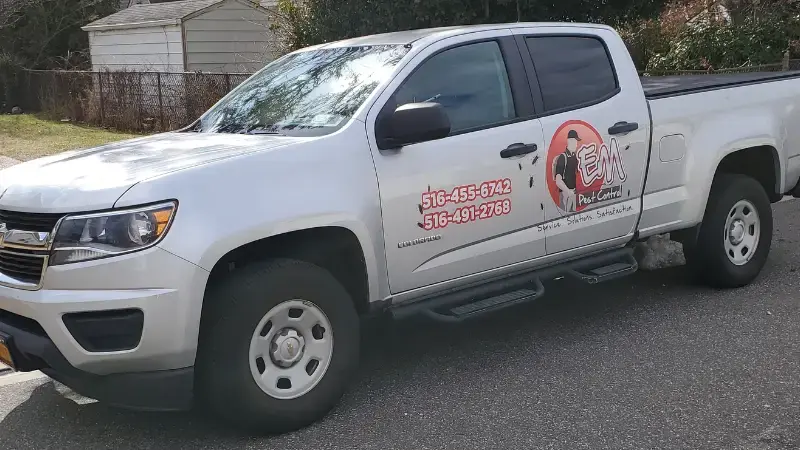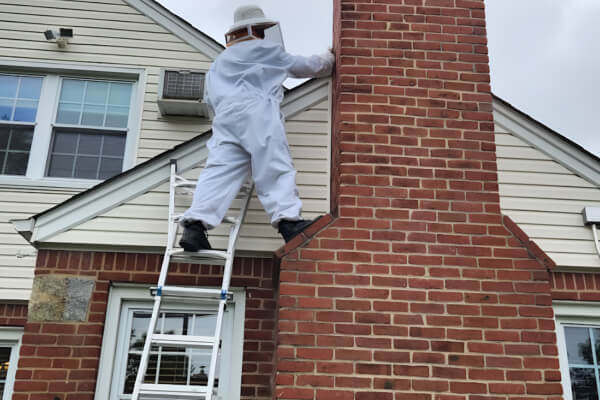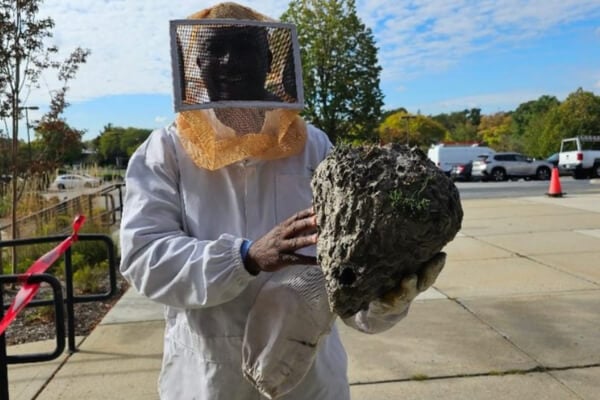Your Local Wasp Exterminators
Servicing Nassau County | Western Suffolk County | Queens
Wasps are a common seasonal concern for many Long Island homeowners and businesses, especially during the warmer months when outdoor spaces are used most. Nests can develop along rooflines, decks, fences, and shrubs, leading to increased activity around entryways and backyard areas.
At EM Pest Control, we provide professional wasp nest removal and control services throughout Nassau and Western Suffolk County. Our approach focuses on safe, targeted treatment that helps reduce activity quickly while protecting your home and business. With prompt service and local experience, we help New York residents regain comfortable use of their outdoor spaces.

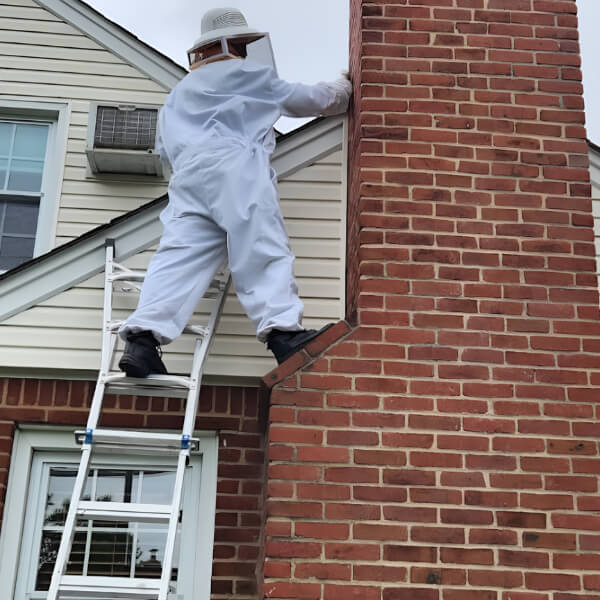
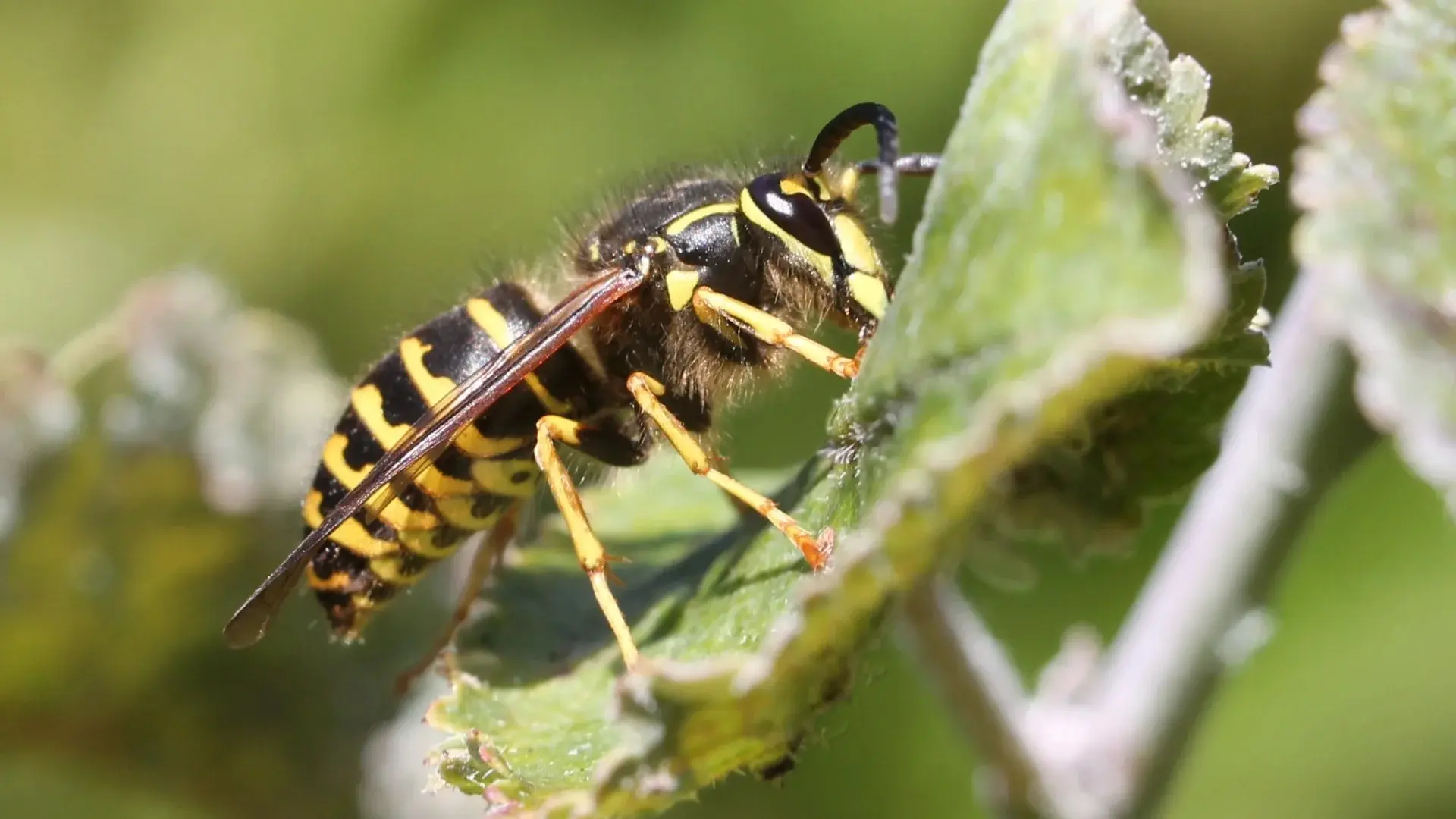
.webp)
